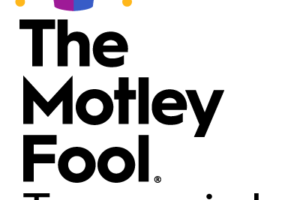
Dear Moneyist,
I am writing because I have been reading so many different questions, answers and as much general information I can find, but I just want one simple answer — and quickly! My husband and I and our child received the first stimulus check from his 2018 tax return.
My husband works any kind of side work he can find. He has had past criminal felony charges and is now listed as a felon, which makes it difficult for him to find full-time work.
But when COVID-19 hit, his work died so he could not file a 2019 return. We were not aware of the non-filer registration, file $0 income return, or whatever you call it, so now we are wondering if we’ll be getting a check in our mailbox or not. We are very frustrated and feel excluded.
The Internal Revenue Service only says 2019 returns, but will they use 2018 returns as a Plan B? And will this Plan B be used as standard procedure for issuing checks by request? We are hurting and need this money.
We live in a house on his family’s property behind their home, but they do not help us with anything financially; they just provide power to the home. The water we use is well water, rather than city water, so we have no water bill.
In 2020, my husband had very little work and did not make anything even in the ballpark of filing a tax return: 2019 was a “fail” in addition to 2020. Are we getting a check? Or how can we get it, as people who are now filing for 2020? Help!
Desperate for a Stimulus Check
Want to read more? Follow Quentin Fottrell on Twitter and read more of his columns here.
Dear Desperate,
The news, I’m afraid, is mixed for you based on your current situation. Those who did not file a 2019 tax return received a maximum of $1,200 based on their 2018 return, assuming they filed one last year. That’s why you received the first economic impact payment.
However, the Trump administration’s second maximum payment of $600 will not be automatically sent based on 2018 returns, according to the IRS. Instead, you will have to apply for a recovery rebate credit on the 2020 Form 1040 or 1040-SR.
The Recovery Rebate Credit is a tax credit against your 2020 income tax. “Generally, this credit will increase the amount of your tax refund or decrease the amount of the tax you owe,” according to the IRS. In your case, it will be part of your 2020 return.
You are eligible “if you were a U.S. citizen or U.S. resident alien in 2020, cannot be claimed as a dependent of another taxpayer for tax year 2020, and have a Social Security number valid for employment that is issued before the due date of your 2020 tax return.”
Anyone with income of $72,000 a year or less can file for a rebate for free here.
I’m sorry I don’t have better news for you, and your story is a reminder of the millions of Americans who are living on the edge and lining up at food banks across the country.
More than 80% of food banks are now serving more people than they were a year ago, according to the nonprofit Feeding America. Approximately 40% of people who visited food banks over the past year had done so for the first time, the organization says, and 4.2 billion meals were given out between March and October 2020.
It’s not yet clear how the Biden administration will allocate $1,400 stimulus checks, assuming that level of payment is approved by Congress, something that is by no means a given. President-elect Joe Biden called the $600 check a “down payment.”
Meanwhile, some 36 states, the District of Columbia, and more than 150 cities and counties have adopted a “ban-the-box” policy on job applications, removing the question that asks job hunters whether they have been convicted of a crime. But some industries do have a no-felon rule, and companies can also make decisions based on their own background checks.
It’s not an easy road for either of you, given that your husband has paid his debt to society.
The good news is that it should not be long before you can apply for the rebate for the second and, hopefully, third stimulus payments. As you have both learned, it’s always worth filing a tax return even if you did not earn enough to qualify.
Hello there, MarketWatchers. Check out the Moneyist private Facebook FB, +2.80% group, where we look for answers to life’s thorniest money issues. Readers write to me with all sorts of dilemmas. Post your questions, tell me what you want to know more about, or weigh in on the latest Moneyist columns.
Quentin Fottrell is MarketWatch’s Moneyist columnist. You can email The Moneyist with any financial and ethical questions at [email protected]. By emailing your questions, you agree to having them published anonymously on MarketWatch.






